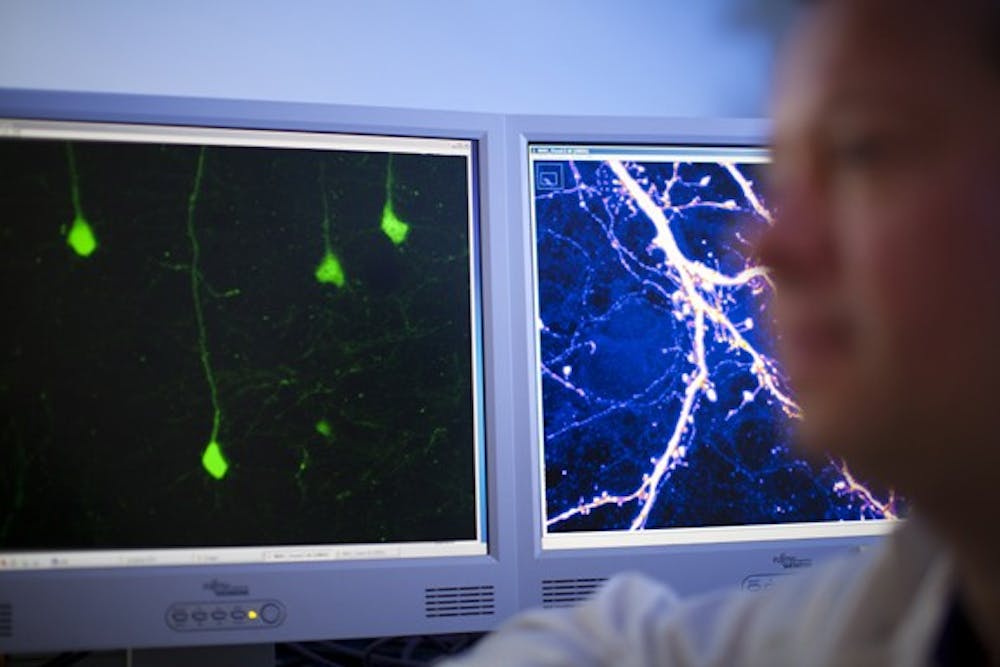Despite being an assistant professor in the Electrical and Systems Engineering Department, Lee Basset could uncover many mysteries about the brain with his pioneering research.
Bassett recently received an exclusive Seed Grant from the Brain Research Foundation to develop a new class of sensors that will respond to chemical signals in the brain through quantum physics.
These sensors can help scientists create a real-time map of brain activity in living animals, and, potentially, in humans.
The grant gives Bassett and his collaborators, Bioengineering assistant professor Brian Chow and Bioengineering professor Andrew Tsourkas, $80,000 in funding over a two year period.
Basset, whose academic background is in physics, described this research as falling under “quantum engineering.”
“It’s sort of a branch of applied physics where we’re trying to find ways of using quantum physics to develop new devices or new technologies or other new science [innovations] that can be used more broadly in other areas,” he said.
In this case, his research could strongly impact the field of neuroscience. Despite the brain not being the subject of his usual academic research, Basset was drawn to it. He credits the uniquely sensitive nature of quantum systems for leading him to the field of neuroscience.
“Part of [what] makes the brain so exciting and so interesting is its complexity,” he said.
Although it may seem odd for an ESE faculty member to receive a grant for research that contributes to neuroscience, it aligns with the BRF’s approach to finding and funding promising research.
Dr. Terre Constantine, Executive Director and CEO of the Brain Research Foundation, said it was not uncommon for non-neuroscientists to submit proposals to the BRF for grant funding. She added that the BRF often funds more innovative projects that other foundations and the government would be less inclined to fund because it’s more of a risk.
“If you are doing something that will help the understanding of the brain or advancing the understanding of neuroscience, we’re definitely going to look at it,” she said.
Bassett also acknowledged the role of the BRF’s vision of neuroscience research when talking about his grant.
“It gives me an opportunity to try and launch this direction of research,” he said.
He added, “Because I don’t have a background in this, it’s kind of hard to crack into the traditional funding streams of neuroscience, [such as] the National Institute of Health.”
That said, the BRF’s historically strong track record gives the organization reason to believe that Bassett’s research will eventually transcend these more “traditional funding streams of neuroscience” — on average, for every dollar the BRF funds, researchers are able to secure $20 from other sources.
Despite the BRF’s efforts in funding brain research, Constantine feels that there is not enough national support for such investments, limiting the advancement of neuroscience.
“The biggest thing is not just getting people to know what it is, [but] we need to get the support up for it,” she said. “It’s such an underfunded area of science.”



